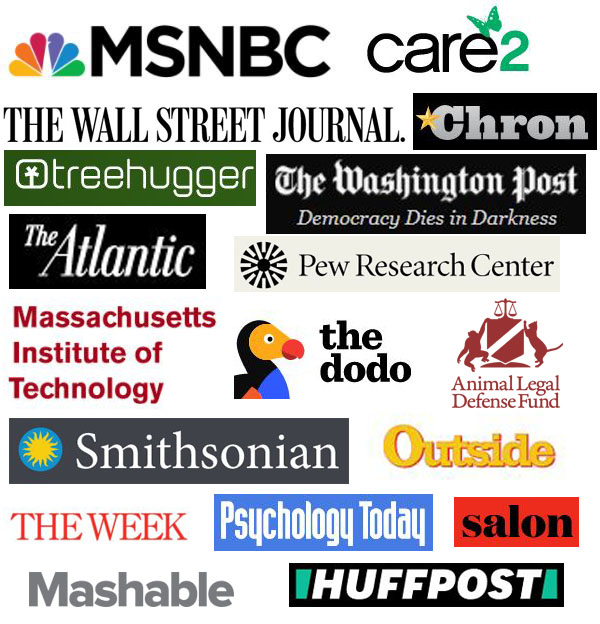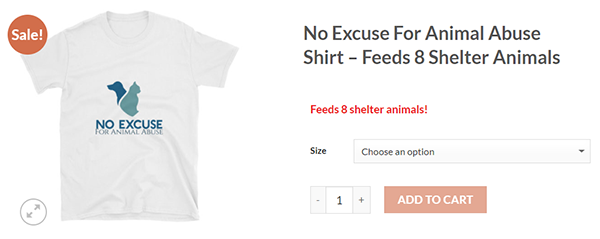Educational Series: Are Fish Farms the New Factory Farming?
By Nick Engelfried
For the first time in history, humans are “farming” more fish and other aquatic life for food than we catch from oceans, lakes, and rivers. That’s according to a report recently released by the UN Food and Agriculture Organization, which showed aquaculture supplied 51 percent of the fish, shellfish, and other sea and freshwater life eaten by people in 2022. The implications of this for animal welfare and conservation are vast–yet, most policymakers and the broader public have yet to truly grapple with what this enormous shift means for our relationship with underwater life.
Humans have raised land-based animals for food for millennia, and have done so intensively for the last few centuries. In contrast, aquaculture, or the practice of growing aquatic animals or plants for consumption, has not been conducted on a large scale until recently. Aquaculture can take many forms, from farming fish in large pens in the ocean to raising shellfish like abalone in vats of water. Proponents of aquaculture argue it can be practiced sustainably and help take pressure off wild populations of marine or freshwater life–and this may be true in some cases.
However, raising aquatic animals for food brings up a host of ethical questions, similar to those encountered in land-based animal agriculture. Fish and other sea life confined to pens often live in overcrowded, disease-ridden conditions where engaging in many natural behaviors is impossible. Meanwhile, there is a danger of waste, chemicals, and parasites from aquaculture operations leaking into the surrounding environment. In some cases, fish or other animals who escape from underwater farms can even become invasive species, wreaking havoc on native ecosystems and the creatures that depend on them.
Small-scale aquaculture has been practiced in certain parts of the world since ancient times. Over a thousand years ago, people in China were raising freshwater carp for food, while the ancient Romans cultivated underwater oyster farms. But whereas early aquaculture largely involved shaping the local environment to create conditions hospitable to the desired species, modern methods are much more invasive.
Among the most problematic types of aquaculture are fish pens, consisting of massive nets which form the walls of huge submerged enclosures where salmon or other species are raised. Fish pens are usually located a short ways out to sea–but because they are mostly underwater, most people visiting nearby beaches may be completely unaware of their existence. Within the walls of the net, many thousands of fish live crowded together, a stressful environment that encourages the spread of disease and parasites. Like land-based factory farms, industrial fish pens are places where animals live short, miserable lives until they are killed for food.
While the abuses on factory farms are relatively well-known, the cruelty of fish pens has received far less public attention, perhaps because fish are portrayed in mainstream culture as unfeeling and undeserving of compassion. Yet, recent scientific studies suggest that while the brains and senses of fish differ from those of birds or mammals, they are just as capable of feeling fear and pain as are cows, pigs, and chickens. This makes highly unnatural environments like fish pens hotbeds of animal cruelty.
The negative impacts from fish pens extend beyond the walls that keep the fish within trapped for the duration of their lives, however. Along with any confined population of animals comes a concentration of animal waste–and the Conservation Law Foundation estimates a standard industrial fish farm produces as much as one million pounds of feces annually. Currents carry the waste into the surrounding environment, where it settles as sludge and forms a toxic layer on the seafloor.
Another similarity between land-based factory farming and industrial fish pens is that both use “preventive” antibiotics to hamper the spread of sickness in crowded, naturally disease-ridden environments. Unfortunately, such widespread use of antibiotics encourages microorganisms to develop into dangerous “superbugs” that are resistant to antibiotics and other forms of treatment. A study published in 2020 found antibiotic overuse on fish farms to treat bacteria contributes to the evolution of superbugs capable of infecting humans and animals alike.
However, perhaps the worst environmental impact of fish pens occurs when damage to nets results in large numbers of farmed fish escaping. This happened in waters off Washington State in 2017, when a fish pen operated by Cooke Aquaculture came apart and released hundreds of thousands of non-native Atlantic salmon into Puget Sound. Amid fears that the fish would compete with or spread diseases to native salmon, the Washington legislature banned the farming of non-native fish the following year.
Policymakers in other parts of the world are also beginning to take a hard look at the environmental effects of fish pens. This year, Canada’s Minister of Fisheries, Oceans, and the Canadian Coast Guard announced open-net salmon pens will be phased out and prohibited in the waters off British Columbia by 2029, largely due to concerns about farmed salmon spreading disease to native fish. And, in 2021, Argentina lawmakers banned salmon farming within the country’s waters.
Despite these wins against industrial fish farming, the global trend in large-scale aquaculture has been dramatic growth, with more and more fish, shellfish, and other marine and freshwater life being raised for food in captivity. As this has happened, aquaculture has grown to look more and more like land-based industrial animal farming, with similar impacts on the environment and animal welfare. It’s important that the public understand the implications of this dramatic transformation in how we produce food from the oceans and other bodies of water.
Like land-based animal agriculture, the use of concentrated farming practices to raise aquatic life for food requires that we humans grapple with what it means to turn other species into commodities that are raised and killed for profit? How we answer this question for marine and freshwater life will shape the fate of aquatic ecosystems and millions of individual animals with the capacity to suffer and feel pain. For animal lovers everywhere, the time is now to speak up and make our voices heard.
Photo credit: Isaac Wedin
Wait, there’s one more step:
Over 1,645,280 Animal Shelter Meals Donated So Far –
Upgrade to a Premium Membership to get a free No Excuse For Animal Abuse shirt, feed shelter animals with the Educational Series and Meal Wheel, sign 100’s of petitions with one-click, remove ads, and promote your favorite petitions to millions!
7 day money-back guarantee for new members. Zero risk.
Premium Membership comes with the following perks:
• Get a free No Excuse For Animal Abuse shirt.
• Bonus shelter meals donated for as long as you remain a member (no action required).
• Feed shelter animals by spinning the Meal Wheel.
• Sign 100's of petitions with one-click.
• Feed shelter animals with the Educational Series quizzes.
• Remove advertisements.
• Vote on which petitions are promoted to millions of people.
Our Guarantee:
Cancel your subscription for any reason within 7 days and we’ll refund 100% of your money, as long as you’re a first time member.
Frequently Asked Questions:
How are the animal shelter meals donated?
We donate shelter meals through Rescue Bank because they research all shelters, maintain equitable distribution, and track the meals from their facilities all the way to the rescue groups. This ensures that the donation will be utilized in the most efficient and impacting way.
Why don’t we just donate meals without providing any perks like the Meal Wheel?
We’ve been at this since 2008 and have learned that to really make a difference, we need to get people excited and engaged. Our mission is a serious one, but our methods are playful and educational. We’re serious about doing good, but also want to make it fun.
Who are we?
We are a family of sites that works to protect animals, the environment, and more. Our sites include AnimalPetitions.org and ForceChange.com. We’ve been at this for over a decade and are dedicated to protecting and defending animals and the environment. If we can have some fun and improve the world, then we’re accomplishing our goal!

We’ve Been Doing This for Over a Decade and Others Have Taken Notice:

Testimonials:
“Thank you SO much for the premium feature of being able to sign multiple petitions with one click. Many of us go for hours at a time signing each and every petition and crying as we read them. I have often wished for a way to sign my name on every petition because I passionately support them and they all need our voice. This is the best thing – thank you very much!” -Karilyn K., Premium Member“This is just the most amazing wonderful service that makes me so happy! To be able to feed shelter pets is just the greatest feeling. Thanks again for this, and for all you do for the most innocent and helpless among us, the animals. I’m lovestruck.” Sandra Z., Premium Member
“I love the upgrade option and I am so glad I did it.....it enables me to stand with you and many others to fight for the justice these precious souls deserve! We are their voice!!!! And....I adore helping to feed them as well! The spin the wheel game is fun....and I like doing it everyday to help! Keep up the wonderful work....and I know....every click makes a difference!” Dorothy B., Premium Member
“I am so excited to become a Premium Member and to have one-click signing, as I was spending countless hours signing petitions...not that I mind doing it, but my goodness, there sure are a lot of them. I always hope that my signature somehow helps, because these people that abuse/torture animals, need to be put away. As you can tell, that is my passion, I have such a heart for animals, and I want to be their voice.” Darlene R., Premium Member
“Thank you so much! I love being a premium member and spinning that wheel every day, especially when I land on 4 or, best of all, 5 meals. Thank you for all you do, we are all so grateful for you.” Sandy T., Premium Member
“With deepest Aloha, You have no idea how grateful I am for you!” Jan L., Premium Member
“Thank you for the Premium Membership option. I really appreciate that I can sign multiple petitions with one click. It's great! Thank you for the work you do.” Ashley H., Premium Member
“I absolutely love the Educational Series!” Yvonne L., Premium Member
"I am a premium member and religiously sign every petition. THANK YOU for this platform. I also vote for the petition nearest my heart, sometimes voting globally, sometimes I am caught by an individual animal's plight. What gives me great pleasure is noting that almost always, the percentages have no more than a 6-7% spread. It means that, overall, everyone cares about all of the petitions ALMOST EQUALLY! LOL, I also spin that wheel, and when I get 4 or 5 meals, I dance around the room! I have long maintained that what someone does to a helpless animal, they will do to a weaker human if they think that they can get away with it. Those who abuse, no matter how many legs their victims have, should be punished to the fullest extent of the law." Rebecca E., Premium Member
"I LOVE LOVE LOVE my Premium Membership! Everything and anything I can do to help animals and contribute to justice in the world makes me very happy!" Jan L., Premium Member
"Thank you, I love what you do. My friends and I love the membership because we can sign so many more petitions that we may never had heard of. Keep up the good work." Virginia G., Premium Member
Still have questions? Email us: animalpetitions@forcechange.com
Nick Engelfried Writes About Animals, the Environment, and Conservation for the ForceChange network









